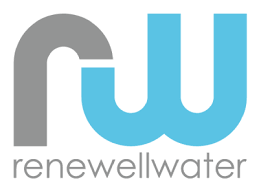The Lough Neagh Crisis - Quality Of Water - How can I help?
- trythealternative

- Aug 13, 2024
- 4 min read
If you have been following my Blogs and Social Media for a while you will know that I love open water, lakes, rivers, streams, waterfalls, the sea, as a watery cancerian being in and around water supports me physically, mentally, emotionally and spiritually. Anyone who swims with me knows I enter the water slowly, connect with the essence of the water and allow myself to mindfully connect with her. I mostly swim in Camlough Lake and this week was saddened to hear that there have been signs of Blue Green Algae in the lake and so swimming is not advised. This has been an on going issue in Lough Neagh warned about over 20years ago and finally hit the headlines last years.
When we think of protecting our environment, our waterways should take always take centre stage due to their critical role in sustaining life and supporting all of our ecosystems, they also increasingly play a key part of many peoples health and well being activities, perhaps one of the reason humans are finally starting to take notice..
Understanding the Threat to Lough Neagh
Minister Andrew Muir's recent report outlines how 62% of Lough Neagh's high phosphorous levels come from agriculture, 24% from wastewater and 12% from septic tanks.
Lough Neagh and indeed all of our water faces threats from various sources, ranging from chemical-laden runoff from agricultural lands to pollutants from personal care products and household cleaning agents. The excessive use of chemicals in farming and our day to day activities poses a significant risk to the water quality and the whole ecosystem of our waterways, impacting not only aquatic life but each and every single one of us.
The Role of Chemical-Free Products
In combating the detrimental effects of intensive farming and urban pollution transitioning to chemical-free alternatives is crucial. From skin care cosmetics to personal hygiene products and household cleaners, every choice we make can either contribute to the problem or be part of the solution. By opting for eco-friendly and chemical-free options, we not only safeguard our own health but also play a role in preserving the environmental integrity of Lough Neagh and all water sources.
A Call to Action: Embracing Sustainable Farming Practices
Every time you spend money you vote for the type of business practices you want to support and in turn the type of world you want to live in.
By supporting sustainable farming methods, advocating for the responsible use of chemicals, and making conscious consumer choices, we can collectively make a positive impact on the health of this invaluable water body. High Industrial Factory Farming has a lot to answer for in particular Pork, Chicken & Eggs, Milk by supporting Farmers who are doing things differently you can be the change. Together, we can be the driving force behind the preservation of Lough Neagh and all of our lakes, rivers and seas and ensure a cleaner, healthier future for all.
Making The Change - Where to begin - Companies and Products I recommend.
The Good Food Project - https://www.goodfoodproject.co.uk/
Green Earth Organics - https://www.greenearthorganics.ie/
Weirs Organic Milk - https://www.facebook.com/p/Weirs-Organic-Raw-Milk-100064631292280/?locale=en_GB
Neals Yard Organic Skincare & Well Being Products https://uk.nyrorganic.com/shop/joannecallan/area/about-me/
Water Filter - https://www.renewellwater.com/
Menstrual Products - Single-use menstrual products, baby nappies and wet wipes still dominate the market, compared to reusable products, and their production in Europe has progressively increased in recent years. In the 28 EU Member States, by 2017 (reference year), statistics have shown that:
• more than 49 billion units of menstrual products were consumed, meaning an annual generation of about 590,000 tonnes of waste,
• around 33 billion single-use baby nappies were consumed, resulting in 6,731,000 tonnes of waste per year, and • around 68 billion individual wet wipes were consumed, which equates to 511,000 tonnes of waste per year.
Single-use menstrual products and wet wipes are usually flushed down the toilet after use and thus, they may enter the marine environment through the waste water release system, resulting in big environmental and economic impacts. Single-use menstrual products and wet wipes are one of the most commonly found single use plastic items in the marine environment (6.2% of waste collected on UK beaches) and when they disintegrate they release a substantial amount of microplastics into the water. The negative impacts of plastic marine debris include both the impacts generated by chemical components and the visible and physical damage.
In the United Kingdom the removal of single-use menstrual products, wet wipes and other related debris from beaches is estimated to cost about €1.1 million annually.
For more environmentally friendly options that are also better for women' s health visit https://www.changingcyclescommunity.com/home
The Spirit of Water.
For a more Spiritual take I recommend having a listen to some of these
and checking out the work of Dr Emoto.

Conclusion
Let us rise to the occasion and become leaders of change. By embracing chemical-free alternatives and promoting eco-conscious habits, we can pave the way for a brighter, more sustainable tomorrow—one where our waterways, like Lough Neagh, thrive in harmony with nature.
Remember, the power to protect our waterways lies in our hands. Let's make every choice count and safeguard the beauty of Lough Neagh and all water for future generations.
What choices and changes are you going to make?























Comments